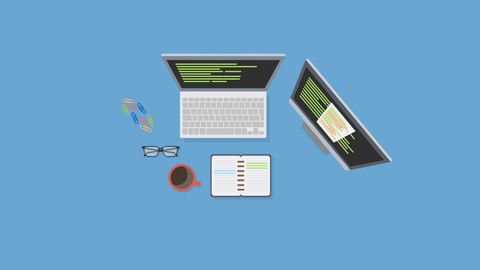Explaining The Supremacy of Cloud Computing and DevOps Course

Introduction
The digital revolution has facilitated the spectacular meeting of DevOps and cloud computing systems. It has changed the style in which industries build, deploy, and maintain software applications. This reframing alliance exhibits a standard shift in business, and so promoting unparalleled flexibility. Scalability and productivity in their functioning. The Azure DevOps course provides the comprehension of the massive impact of this alliance and educates on advanced concepts on the subject matter.
Are you someone who wants to stay competitive in the constantly growing IT sector?
In this blog, we will give an extensive probe into these technologies. It will allow DevOps aspirants to tackle their full potential and contribute to the organization with innovations.
Defining Cloud Computing and DevOps
Cloud computing is the base of today’s IT architecture and gives spectacular benefits, concerning scalability, flexibility, and sticking to a budget. By using these solutions, industries can supply resources, access to recent technologies, and upgrade their functioning seamlessly to fulfill the growing business demands.
On the other hand, DevOps has brought an operational and cultural shift. It thus wants to reduce the void in software development and IT functioning. DevOps stresses more on alliance, mechanization, and continuous integration or delivery. As a result, it unites the software dispatch pipeline and speeds up the time to appear in the market. By disintegrating archives and encouraging multifunctional partnerships, DevOps pushes organizations to accelerate deployment cycles, higher quality releases, and be more prompt and responsive to customer feedback.
To make it easier to understand, DevOps and Cloud computing together acts to:
- Combining construction and operations of software applications
- Coordination and scalability
- Automation and transcription
- Alliance in the construction and deployment of software applications
- Auditing and Management of the applications
The cloud computing and DevOps course educate young aspirants on the central idea of DevOps, which includes version control, automated testing, infrastructure as code, etc. This in turn equips the learners with the required skills to execute the DevOps exercise within their teams.
Offerings of Cloud Computing and DevOps Course/Azure DevOps course
The syllabus of cloud computing and DevOps course is curated to provide an all-inclusive learning of both DevOps and cloud computing concepts, with emphasis on their addition and cooperation. Enrolled learners will start the learning by gaining an understanding of the basics of Linux, Python programming, AWS cloud mastery, Microsoft Azure proficiency, GCP (Google cloud platform), server & application virtualization, data migration & resilience, DevOps expertise, and Splunk development & admin.
The tools and languages covered in the course are Python, Linux, NumPy, Azure, AWS (amazon web services), Jupyter, Google Cloud, Github, Hadoop, docker, Kubernetes, etc. The best part of the curriculum is that it is designed in collaboration with IBM & Microsoft, with 100% job support and live capstone projects for hands-on experience.
Focusing on practical learning along with theoretical learning enables learners to face real-world challenges happening across industries. It strengthens their portfolio to outcompete other candidates in the competitive job market.
Additionally, the course also engages participants in collective learning. So, allows connecting with experienced professionals, and peers, sharing knowledge, and collaboratively resolving challenges. Apart from technical learning, this experience provides young aspirants with the scope to improve their teamwork and interpersonal skills. These skills are nowadays, critical for working in tech-driven work environments.
Towards the end of the course, cloud computing aspirants will gain a thorough understanding of DevOps and cloud computing concepts, along with the practical expertise needed to execute it in the industry.
Job Roles Related to DevOps and Cloud Computing
The job roles that you are entitled to after completing the coursework are Software Developers, System Administrators, System Designers, Azure Engineers, AWS DevOps Designers, etc. Thus, it can be inferred that the supremacy of cloud computing and DevOps courses equips working individuals to welcome the upcoming of IT, grabs scopes for innovation, and makes you one step ahead in the demanding job market.
Salaries of DevOps and Cloud Computing Professionals
The salaries of DevOps and cloud computing professionals depend on several factors such as geographic location, experience level, qualification level, industry, employer, etc. Regardless of this, both profile is bound to give higher compensation compared to other fields. It is because of the importance and demand of such profiles to embrace digital transformation, irrespective of any industry.
Including entry-level to experienced professionals, the salary range of DevOps professionals falls between $70000 – $150000. Whereas, The salary of a cloud computing personnel comes in the range of $60000 – $180000. From a holistic view, both professions ensure good career prospects, opportunities, and advancements, with lucrative salaries. Thereby, enhancing the living standards of an individual in the expensive world.
Summary
There are several advantages of integrating cloud and DevOps technologies. The most important thing is that the streamlines all the operations that happen in business organizations. With the data-depending business growth, the need for such software applications has become popular. Join Learnbay’s Azure DevOps course and get comprehensive theoretical and practical learning, along with 1:1 doubt-clearing sessions, guidance on writing a resume, interview preparation, and guaranteed interview calls to help you secure a job.
Don’t wait, join today!







